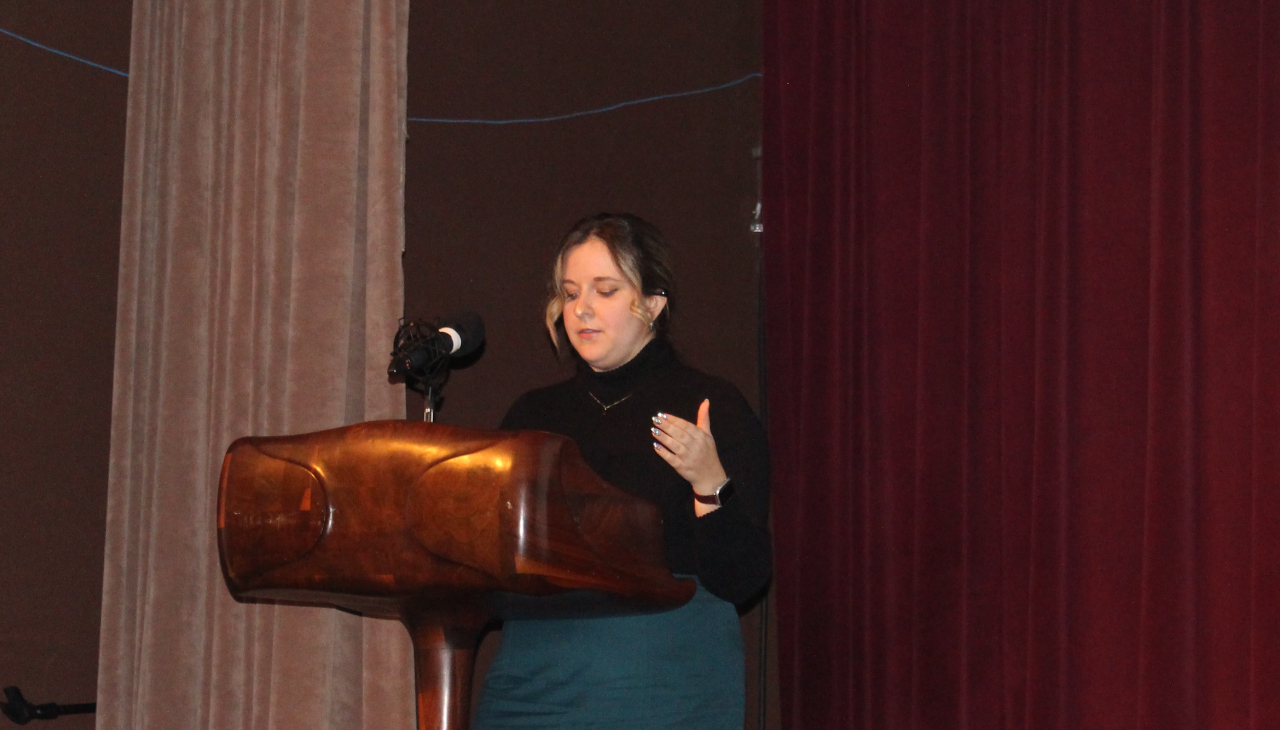
Anti-LGBTQ+ Extremism and its Anti-Semitic Connections
A presentation at the People United to Stop Hate (PUSH) Symposium analyzed the link between anti-LGBTQ+ extremism and anti-Semitism.
On Jan. 6, The Philadelphia Commission on Human Relations (PCHR) held the People United to Stop Hate (PUSH) Symposium at The Free Library of Philadelphia.
The symposium featured panels and presentations that discussed hate crimes, the legal system as it relates to them, and prevention.
Sarah Moore, an Anti-LGBTQ+ Extremism Analyst at the Anti-Defamation League (ADL) in partnership with Gay & Lesbian Alliance Against Defamation (GLAAD), gave a presentation on anti-LGBTQ+ extremism, and the connections it has to anti-Semitism.
Hate vs. Extremism
Moore started off her presentation by defining anti-LGBTQ+ hate vs. anti-LGBTQ+ extremism.
She explained, “So when we’re speaking about anti-LGBTQ+ hate, we’re talking about these communities being marginalized, or oppressed because of their identification with or perceived support for the LGBTQ+ community.”
She added, “We’re talking about the belief that the oppression or marginalization of LGBTQ+ individuals or communities, is justified because of the perceived danger or deviance.”
Moore then explained the homophobic and transphobic narratives that are being spun about the LGBTQ+ community. The first was the labeling of LGBTQ+ people as “groomers'' or saying that the community is “grooming” children. She emphasized that the term “grooming” has a legitimate use when talking about sexual abuse, but the way that it’s getting applied to the LGBTQ+ community is false.
“This narrative is not using groomer in a legitimate context. Instead, we see extremists implicitly or explicitly claiming that LGBTQ+ adults are pedophiles, who are preying on children simply by discussing issues relating to sexual orientation, or by displaying their own gender identity or sexual orientation,” Moore said.
The second narrative involves gender-affirming care. The Department of Health and Human Services (DHS) describes gender-affirming care as “a supportive form of healthcare” which “consists of an array of services that may include medical, surgical, mental health, and non-medical services for transgender and nonbinary people.”
Examples of this include mental health services, puberty blockers, and gender reassignment surgery.
Moore added that there is a consensus among prominent medical organizations that gender-affirming care is “medically necessary and appropriate,” and studies have shown it leads to lowered rates of depression, suicidal thoughts, and attempts.
Children who are denied this type of care have lasting negative impacts on their physical and mental health. Moore shared that GLAAD reported that 52% of transgender and nonbinary youth have considered suicide in 2022 and 1-in-5 have attempted it.
“Despite these facts, anti-LGBTQ+ extremists have alleged that gender-affirming care amounts to child mutilation and castration, as well as causing irreparable damage to young children,” said Moore.
According to the same article from DHS, all of the gender-affirming care given to children and young teenagers is either fully or partially reversible. Surgery is generally reserved for adults, but may be done on older adolescents on a case-to-case basis.
An article published in the Plastic and Reconstructive Surgery - Global Open journal found that just 1% of transgender people regret gender reassignment surgery. This data was pooled from 27 studies that all together looked at almost 8,000 patients.
RELATED CONTENT
The IRL Effects of Social Media Extremism
Although much of these narratives are spread online, they have extreme and often devastating real world effects.
In Oct. 2022, Children’s Hospital of Philadelphia had to increase security after threats were made against its transgender clinic. Many other pediatric hospitals have experienced similar situations, including Boston Children’s Hospital, which dealt with three false bomb threats last year.
In addition to this, Moore explained that GLAAD had reported that 141 instances of threats or violence against drag performers or events had happened in 47 states in 2022.
She also pointed out that the Club Q shooting, that killed five people in Nov. 2022, was celebrated online by anti-LGBTQ+ extremists.
In 2022, 66% of LGBTQ+ people reported being harassed online, with 54% reporting severe harassment. In the same study, 37% of Jewish respondents reported being harassed online, 23% severely.
Moore explained that anti-Semitism, as defined by the ADL, is “the marginalization or oppression of people who are Jewish based on the belief in stereotypes and myths about Jewish people, Judaism, and Israel.”
The ADL conducted a survey in 2019 to determine which anti-Semitic tropes and stereotypes were still prevalent in America. The three with the highest percentage of agreement were “Jews stick together more than other Americans” (44%), “Jews always like to be at the head of things” (25%), and “Jews are more loyal to Israel than to America” (24%). All three are based in older stereotypes of greed, control, and dual loyalty that persist.
Moore talked about how anti-Semitic troupes are being used in anti-LGBTQ+ hate saying, “some of these conspiracies, specifically anti-LGBTQ+ beliefs of gender, ideology and indoctrination of children often intersect with anti-Semitic tropes around Jewish power and control.”
She explained that extremists claim that Jewish people are promoting the “LGBTQ+ agenda” to “cause the downfall of the Christian Western society by promoting sexual immorality and alternative lifestyles” through their control of the media and government. The claim that Jewish people control the media or the government is also a very old anti-Semitic trope.
The Marginalized Become Targets
Moore wrapped up her presentation with recent examples of how anti-LGBTQ+ and anti-Semitic hate have converged. This includes the manifestos of mass shooters and campaigns against gender-affirming care providers. The campaign against Boston Children’s Hospital contained anti-Semitic tropes and targeted Jewish doctors.
“So in conclusion here, I want to wrap up by saying that anti-Semitism and anti-LGBTQ+ extremism, as well as other forms of hate are deeply, deeply intertwined. These marginalized communities are often seen as easy targets by which groups can recruit and mobilize other extremists,” said Moore.










LEAVE A COMMENT: